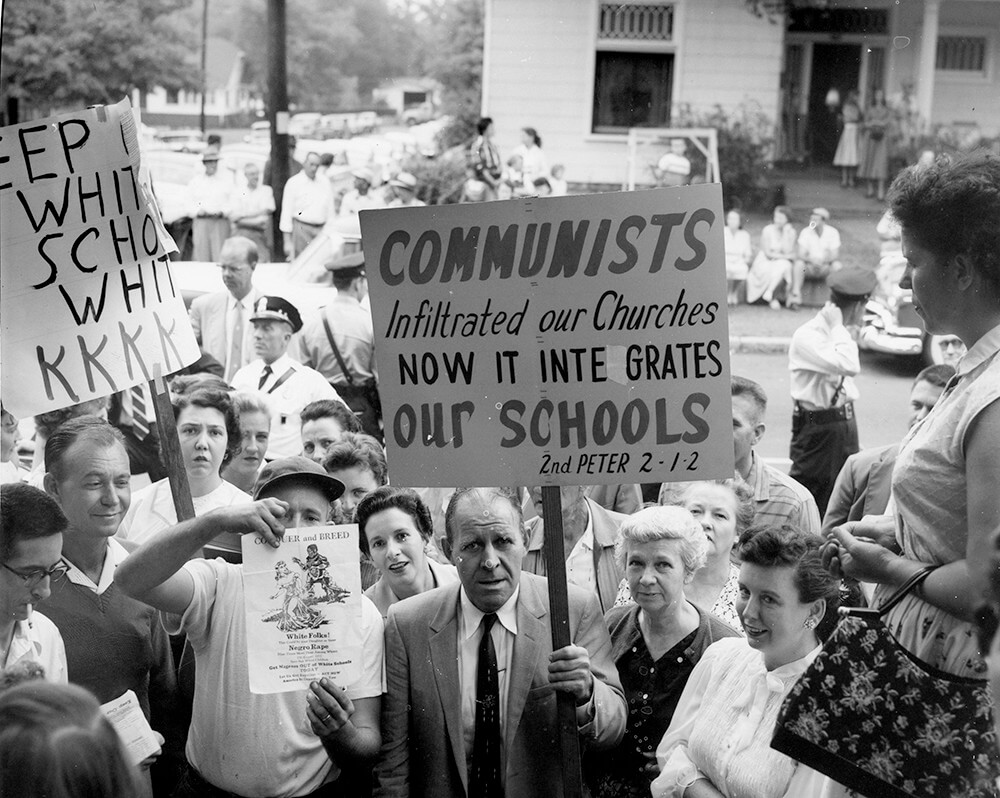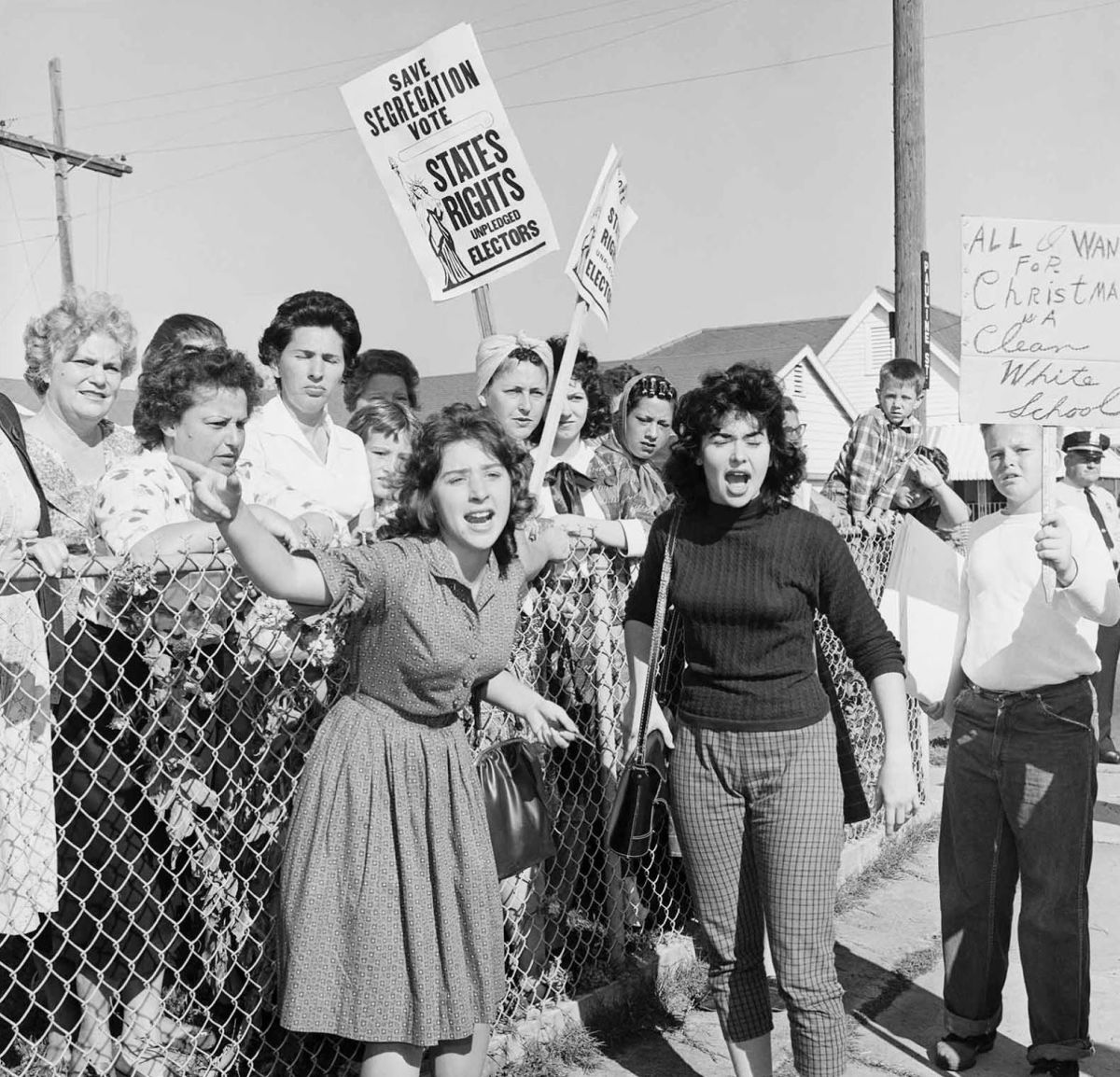Last month, I went to see the movie Harriet. The only white woman in the film was Eliza Brodess, the wife and mother of the men who enslaved Harriet Tubman. Eliza has no redeemable characteristics. She is devoid of empathy toward the people her family has enslaved. She callously suggests the sale of slaves and the breaking up of families, and treats Harriet’s sister, Rachel, who works in the house, with casual cruelty.
The scene where Eliza lashes out at Rachel’s newly motherless young daughter, Angerine, violently accusing her of plotting against her, is one of the most painful in the whole movie.
As a mother, my heart twisted. As a white woman, I felt deeply ashamed.
Many white women in feminist and activist circles seem to take it for granted that black women will be their natural allies. After all, both white women and black women have been oppressed at the hands of men, right? And both have faced oppression at the hands of white men in particular, right? This ignores the utter complicity of white women in the oppression of black women for centuries.
And this isn’t just in some longtime past.
Let’s start with slavery. Were white women who lived in the south subject to the constraints of patriarchy? Absolutely. But owning enslaved people could give a white woman status and power. And many white women absolutely took out any frustrations they might have felt in their personal lives on their enslaved people, as Eliza does in Harriet. Having that kind of power over someone is corrosive.
Facing the constraints of patriarchy did not make white women any more likely to identify with, ally with, or support black women. Not in the least.
Let’s fast forward for a moment. For a century after the end of slavery, black women worked in domestic service in the homes of white women, often in conditions that differed mirrored those that had existed under slavery. Black women could now leave, or quit their job, but if they did, an employer might blackball them. And, once again, white women could take out frustrations in other parts of their lives on the people they employed—people who earned low wages and frequently had few options.
The Help is a white savior movie, but it portrays many aspects of the constraints of domestic work well. White women were not the heroes of this story. They were the villains. In most cases, the best a black domestic worker could hope for was a white employer who left her more or less alone. There was no solidarity between black domestic workers and their white female employers.
And then there were lynchings, and, once again, white women were front and center. Many lynchings began when a white woman accused a black man of rape—or merely of looking at her the wrong way. Remember, Emmett Till’s murder was precipitated by a white woman’s claim that he whistled at her. Do you think Emmett Till’s mother felt solidarity with the struggles of white women? Why would she?
White women were dangerous. White women presented a real and present threat to black people—especially to black men and boys. But it’s not over. It’s not really were.
Consider all of stories where white women have called the police on black people for frivolous reasons. Remember that white woman in Brooklyn who called the police, accusing a nine-year-old black boy of groping her, after his backpack brushed up against her in a tight deli?
If I had a black son, I’d teach him to tread lightly around white women.
Have you ever looked at pictures of segregationists protesting against civil rights? I mean really looked? These aren’t crowds of white men. White women are right there with them—front and center—in droves.

Do you see the poster the man on the bottom left is holding? It’s an anti-integrationist propaganda piece. I looked for it online, but was only able to find the top portion.
.jpg)
“Conquer and Breed,” the caption reads. A black figure, styled as a brute, bears the label “integration.” A white woman, posed as though fleeing, wears the label “southern womanhood.”
To be sure, one could argue white men were using the image of womanhood—an image carefully created and curated to keep women from moving beyond the narrow domestic box men wanted them in—as a tool to oppress black people. And this is absolutely true. But I don’t exactly see the white women of the South objecting to this use.


And of course, it wasn’t just the South. It showed up in places like Boston, where white women came out en masse against school bussing designed to end school segregation.

And, once again, it’s not over. 53% of white women voted for Donald Trump. Not so, black women. Black women voted overwhelmingly for Hillary Clinton. Black women still can’t trust white women to have their backs. White women have never had their backs.
This past March, black novelist Kim McLarin wrote an article titled Can black women and white women be true friends? for the Washington Post. In it, she wrote as follows:
Generally speaking, it’s not that I dislike white women. Generally speaking, it’s that I do not trust them. Generally speaking, most black women don’t.
…
This is what black women know: When push comes to shove, white women choose race over gender: Every. Single. Time.
This is so real it hurts.
And you know what else I’ve seen myself, locally? White women are fragile. The smallest point of criticism and they get upset. How dare you say that of them! And yes, I say this as a white woman! But I’ve learned that when criticism makes me uncomfortable, it’s best to close my mouth and sit with it, because there’s probably something there.
I’ll end with this incredibly important story, from McLarin’s article:
Every fall, I teach a survey class in African American literature, an undertaking I consider one of the chief honors of my life. One of my favorite books to teach in this class is Harriet Jacobs’s seminal slave narrative, “Incidents in the Life of a Slave Girl.”
Authenticated as the first book-length slave narrative written by a woman, “Incidents” is a powerful and compelling examination of slavery’s impact on black women and the black family.
“Slavery is terrible for men, but it is far more terrible for women,” she writes in the narrative’s most famous line. The students nod. They’re with Jacobs as she details the physical, psychological and sexual terrorism of slavery. They’re with her as she asserts the resilience and importance of black kinship. They’re definitely with her as she critiques the hypocritical Christianity of the South.
But when Jacobs gets around to criticizing white women — both Southern white women who turn a blind eye to, or actively enable, their husbands’ rape and debasement of enslaved women and their Northern counterparts who, enraptured by the romantic myth of the wealthy Southern gentleman, do the same — some students begin to balk. Without fail, at least one young white woman will raise her hand, eyes determined, chin quivering: “Yes, but all women were property back then.” Or: “Gender discrimination has always been a bigger problem than racism.” Or: “Well, white women didn’t have it much better than slaves.” Which is simply untrue.
I find these moments revealing, the student’s face both intense and needy as she mounts her defense of white women past.
If this student, who is young but neither thoughtless nor ill-informed, insists on believing that white women in 1850 were as oppressed as enslaved people, if she cannot and will not acknowledge the power differentials that existed within a system of legal, racialized slavery, how can she grapple honestly with the power imbalances of today?
And if she won’t, how can she and her black classmate possibly be friends?
Let me return, in closing, to the movie Harriet, with its sole white female character, Eliza Brodess—enslaver, abuser—who reminds us that white women were never the co-conspirators in this story. Instead, they were the co-villains.
As much as we white women would like to pretend that we’re not like that, or that this is just something to be found in dusty historical tomes, we can’t pretend the past—or the present—away. And we shouldn’t try. Instead, our call should be to do better.
I have a Patreon! Please support my writing!















